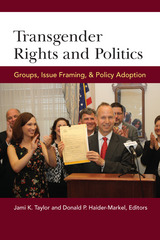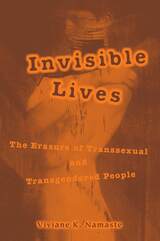Professing Selves: Transsexuality and Same-Sex Desire in Contemporary Iran
Duke University Press, 2013
Paper: 978-0-8223-5557-1 | eISBN: 978-0-8223-7729-0 | Cloth: 978-0-8223-5543-4
Library of Congress Classification HQ77.95.I7N35 2013
Dewey Decimal Classification 306.7680955
Paper: 978-0-8223-5557-1 | eISBN: 978-0-8223-7729-0 | Cloth: 978-0-8223-5543-4
Library of Congress Classification HQ77.95.I7N35 2013
Dewey Decimal Classification 306.7680955
ABOUT THIS BOOK | AUTHOR BIOGRAPHY | REVIEWS | TOC | REQUEST ACCESSIBLE FILE
ABOUT THIS BOOK
Since the mid-1980s, the Islamic Republic of Iran has permitted, and partially subsidized, sex reassignment surgery. In Professing Selves, Afsaneh Najmabadi explores the meaning of transsexuality in contemporary Iran. Combining historical and ethnographic research, she describes how, in the postrevolutionary era, the domains of law, psychology and psychiatry, Islamic jurisprudence, and biomedicine became invested in distinguishing between the acceptable "true" transsexual and other categories of identification, notably the "true" homosexual, an unacceptable category of existence in Iran. Najmabadi argues that this collaboration among medical authorities, specialized clerics, and state officials—which made transsexuality a legally tolerated, if not exactly celebrated, category of being—grew out of Iran's particular experience of Islamicized modernity. Paradoxically, state regulation has produced new spaces for non-normative living in Iran, since determining who is genuinely "trans" depends largely on the stories that people choose to tell, on the selves that they profess.
See other books on: Gender identity | Iran | Najmabadi, Afsaneh | Sex change | Transsexualism
See other titles from Duke University Press





























